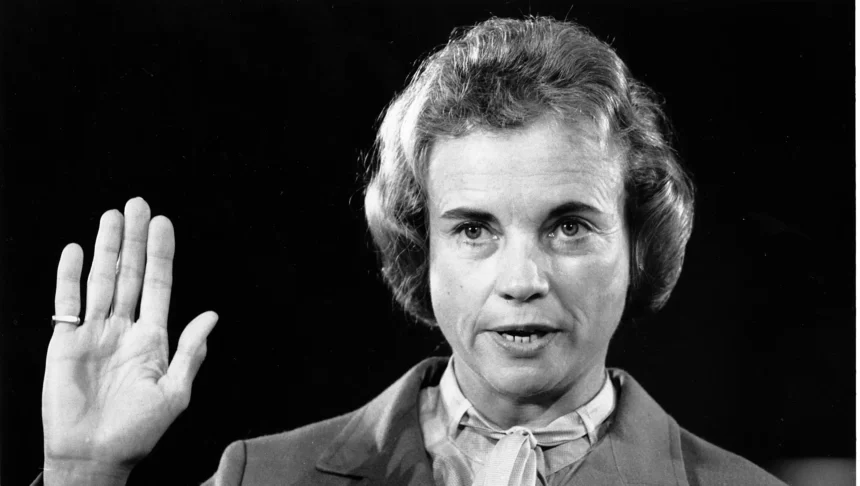Sandra Day O’Connor, the trailblazing jurist and the first female Supreme Court Justice, passed away at the age of 93 in Phoenix. Her death, attributed to complications related to advanced dementia, likely Alzheimer’s, and a respiratory illness, marks the end of an era in American legal history.
Born on March 26, 1930, in El Paso, Texas, O’Connor’s journey to the pinnacle of the judiciary was nothing short of remarkable. Graduating third in her class from Stanford Law School in 1952, she faced the gender bias prevalent in the legal profession during the mid-20th century. Despite her academic excellence, opportunities were limited for female lawyers at that time.
O’Connor’s breakthrough came in 1981 when President Ronald Reagan nominated her to the Supreme Court. This historic appointment shattered the glass ceiling, opening doors for women in the legal field and beyond. Throughout her tenure, which spanned from 1981 to 2006, O’Connor played a crucial role as a moderate and often the swing vote in major cases.
Her Impact On Judicial System:
Her impact on pivotal decisions, such as Planned Parenthood v. Casey and Bush v. Gore, showcased her commitment to judicial pragmatism and thoughtful deliberation. O’Connor’s ability to bridge ideological divides earned her respect from both sides of the political spectrum, cementing her reputation as a centrist and consensus builder.
The revelation that her passing was linked to advanced dementia, likely Alzheimer’s, sheds light on the personal challenges she faced in her later years. Despite these struggles, O’Connor remained a symbol of resilience and grace. Her legacy extends beyond the courtroom, serving as an inspiration for aspiring lawyers, especially women, who continue to strive for equal representation in the legal profession.
In the wake of her passing, tributes have poured in from legal scholars, politicians, and ordinary citizens alike, highlighting the indelible mark she left on the nation. Chief Justice John Roberts praised her as “a towering figure in the history of the United States and indeed the world.”
As we remember Sandra Day O’Connor, we reflect not only on her groundbreaking achievements but also on the enduring impact of her legacy. Her contributions to the pursuit of justice and equality serve as a reminder that one person can indeed change the course of history, leaving an indelible mark on the fabric of our society.
